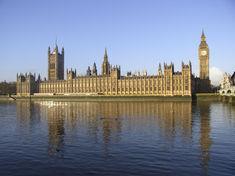
As the first coalition government in 70 years sets to work in the UK this week, fresh produce companies have been left wondering how it will affect their business - particularly with wider European economic problems, most notably in Greece and Spain.
The Conservative-Lib Dem coalition, headed by Tory prime minister David Cameron with Lib Dem leader Nick Clegg as his deputy, is likely to bring in VAT hikes that could drive consumption away from convenience produce. European economic recovery packages that could damage buy-British trends may also be introduced.
The Conservatives widely present a positive attitude to agriculture, having suggested they will make no further cuts to capital grants and tax relief for the sector, but their indications towards VAT are potentially dangerous for produce businesses.
A proposed VAT hike to 20 per cent could include food, as is the case in continental Europe, which is likely to swing buying back towards a recessionary trend and staple produce and away from more costly convenience items.
Gary Markham, Grant Thornton’s director of agriculture, told freshinfo: “If the government brings VAT to food, it will have a huge impact on the dynamics of the industry, as a lot less convenience food would be bought.
“We are very lucky we are not in the euro at the moment. A weak euro and the relative strength of sterling does not help importers. Spain will develop a domestic recovery package that will doubtless drive the industry to imports and away from British produce as people look for cheaper food.”
National Farmers’ Union (NFU) senior parliamentary advisor Matt Ware told freshinfo that the Conservatives matched 22 of the NFU’s 46 policy points set out in its Why Farming Matters in the Election manifesto, while the Lib Dems matched 15. The majority of rural constituencies in England were won by Conservative candidates.
Ware said Labour’s cuts on capital grants and tax relief for agriculture in recent years had “undermined and eroded” its relationship with the industry and said Tory indications are that they would halt the reduction of financial support. However, budgetary constraints have meant this has not yet been formally announced.
The Conservatives want a “vibrant agricultural and horticultural sector” and have expressed the desire to cut red tape. They have also said they will revisit the Integrated Pollution Prevention and Control (IPPC) regulation, which has proved costly to glasshouse users.
Ware said: “The NFU has asked for the IPPC monies to be ringfenced for other green issues such as research into lower energy usage or putting the money into the Carbon Trust.”
James Hookham, managing director of policy and communications for the Freight Transport Association, said:
“There are some crunch issues on transport for the new government to grapple with - infrastructure investment, climate change and capacity improvements.”